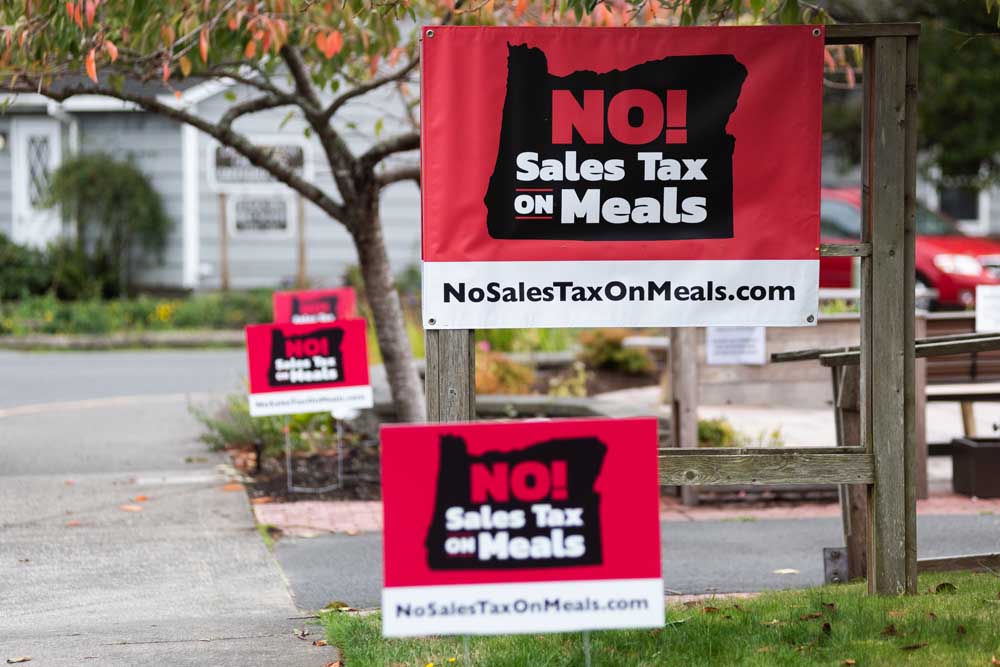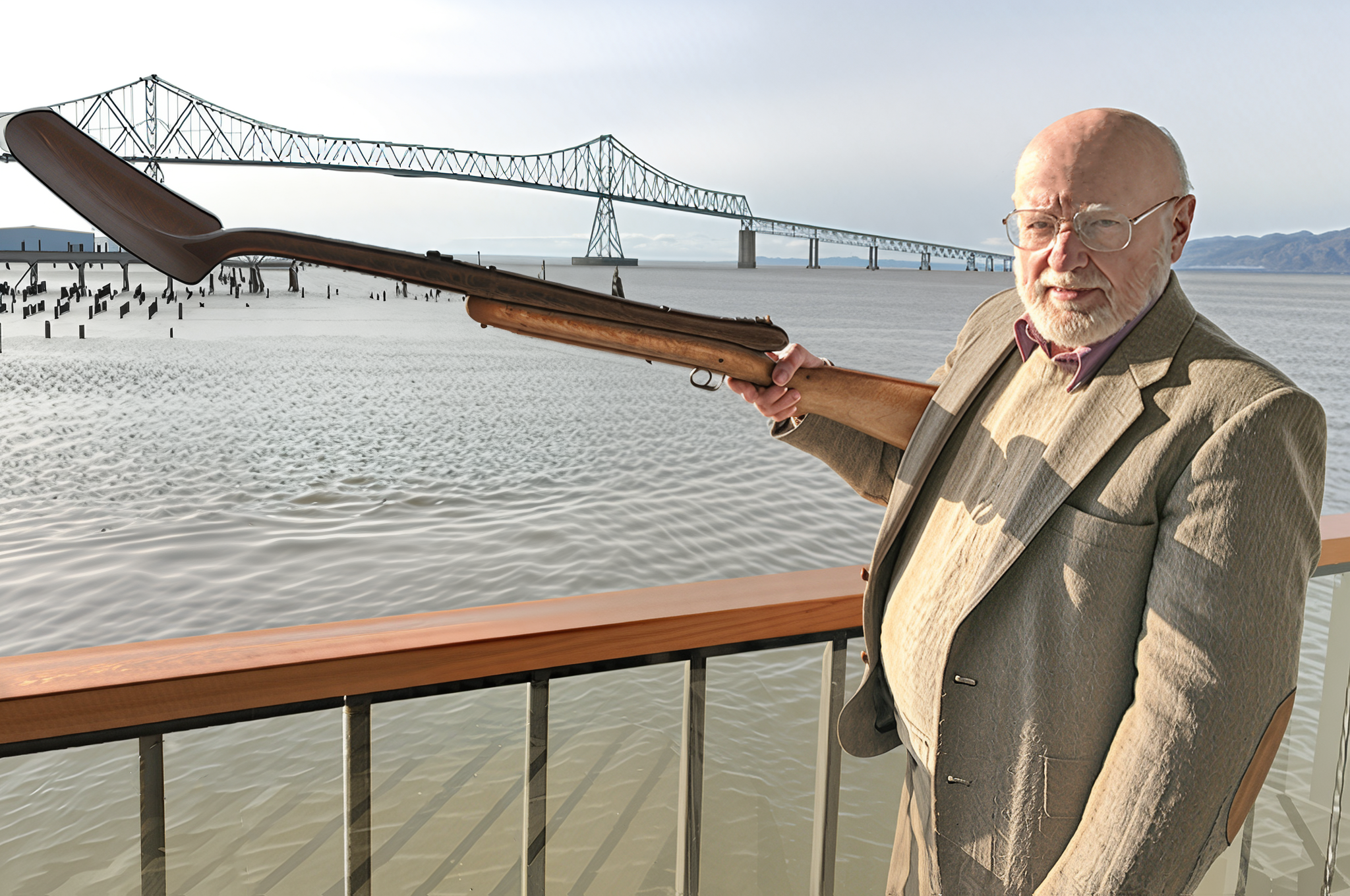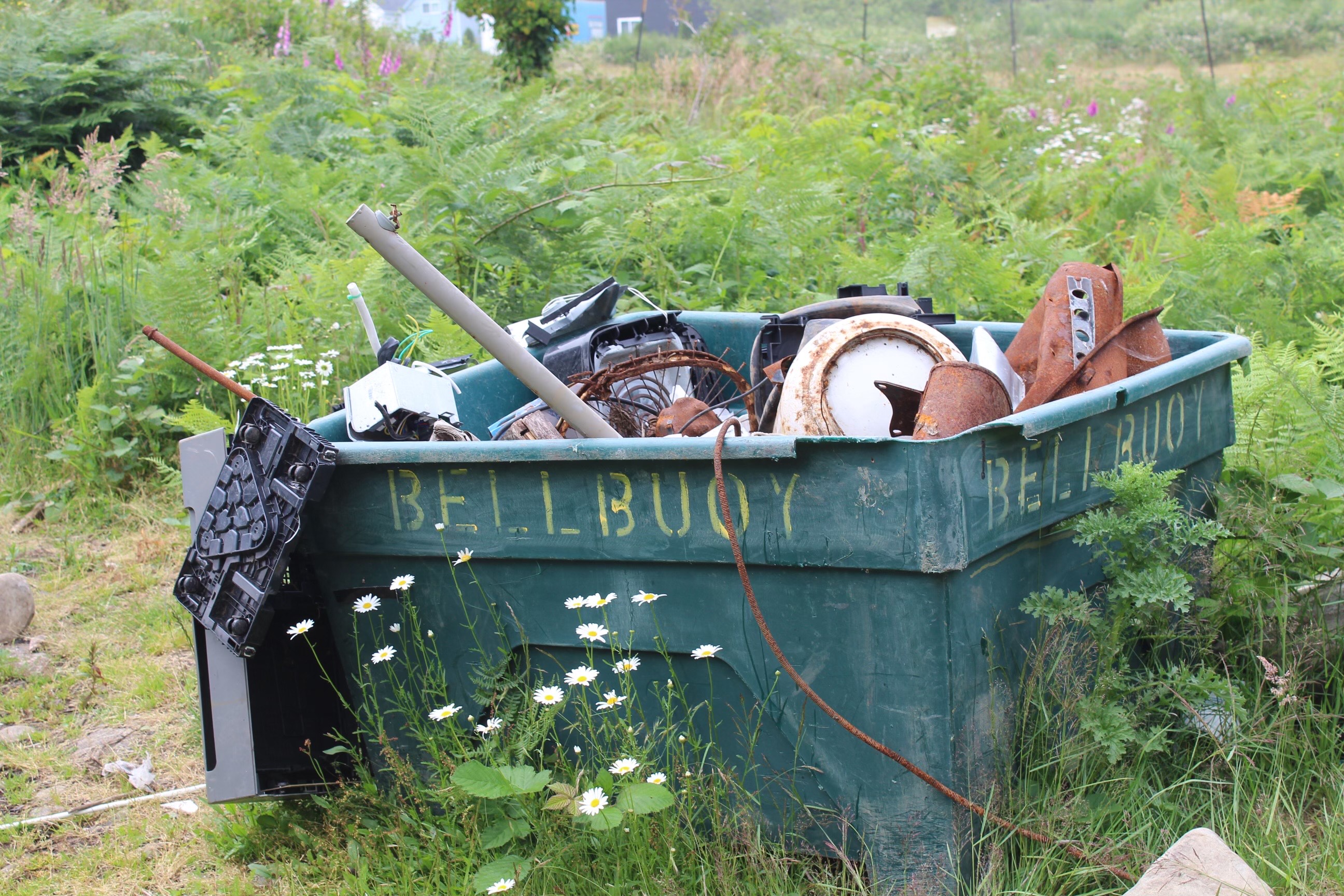Cannon Beach prepares for food tax vote
Published 10:45 am Friday, October 15, 2021

- Anti-food tax signs line the sidewalk along Fir Street in Cannon Beach.
CANNON BEACH — The two women didn’t know each other until they visited the same tiny hair salon in Portland’s Sellwood neighborhood on the same day and got into an argument about a proposed food tax in Cannon Beach.
The women remember the interaction differently, but both felt attacked for their opinions.
Deanna Hammond, the co-owner of the Cannon Beach Bakery, is decidedly against the tax.
Like a number of other restaurant and food-related business owners, Hammond believes the tax would add to her costs. She anticipates having to hire an extra person just to help with bookkeeping if voters pass the tax in the November election.
The city’s proposed 5% tax on prepared food — food meant for immediate consumption, whether to-go, delivered or onsite — is intended to target tourist dollars. The city and the Cannon Beach Rural Fire Protection District would split the revenue generated — an estimated $1.7 million annually — and the money would help fund operations at the fire district and pay for city infrastructure projects like a new City Hall and police station. The city has pledged some money to businesses to help defray costs associated with collecting the tax.
Hammond supports the fire district and the police department. But — with the coronavirus pandemic, related back-and-forth restrictions on restaurants, the rising cost of food and supplies and a labor shortage — she does not believe this is the time to add to business owners’ burdens.
Deb Atiyeh, the other woman in the Portland salon that day, sees things differently. She stumped in support of the tax proposal for most of the summer and has helped lead a grassroots campaign to get out information to voters. She lives near the fire district’s station and she said the sirens blare constantly.
“They’re being crushed by tourism,” she said.
‘Crushed by tourism’
Calls for service rose steeply this year, many of them coming from visitors. Last year, the fire district responded to more than 400 calls for service and is on track to surpass that number this year. Meanwhile, city offices and operations are housed in a failing building.
In Atiyeh’s mind, the services and city infrastructure the tax revenue could support would benefit everyone. The businesses that don’t support the tax? “I see them as being rather selfish, to be honest with you,” she said.
Residents describe a palpable tension in town over the topic.
But Cannon Beach is not the only Oregon city pursuing a sales tax to carve out a new revenue stream. Newport, just over 100 miles to the south, is going to voters with a 5% prepared food tax. Newport estimated the tax would add around 50 cents to a $10 meal bill.
In 2019, Hood River, in the Columbia River Gorge, failed to pass a similar tax. The tourist-dependent cities of Ashland and Yachats already have voter-approved taxes on prepared food and nonalcoholic beverages.
Some cities have also looked to their cut of lodging tax dollars. State law dictates how lodging tax money is spent. The bulk must go to tourism promotion or tourism-related facilities. In recent years, some cities have looked at less obvious places to put that money.
In Astoria, the city has used some of its tourism money to help maintain facilities like the Astoria Aquatic Center or to pay to keep public bathrooms clean. Tourists use these facilities and amenities, the city has argued.
To Mark Gharst, a lobbyist with the League of Oregon Cities, these are all measures cities pursue specifically to address too much of a good thing: the wear and tear associated with growing populations or increased tourism.
“There are a lot of cities out there that are just struggling to provide the services the residents want so they are looking at a lot of unique ways to pay for it,” Gharst said.
Oregon’s property tax system is broken, he said, hampering cities’ abilities to raise revenue through that more traditional means.
Property taxes form a substantial portion of a city’s revenue. As certain cities’ populations grow and communities and local economies change, property tax laws and mandates established decades ago have not kept pace, some city leaders argue.
Property taxes also only impact residents. In Cannon Beach, city and fire district officials said they were not interested in asking more from residents. Rather, they wanted to find a way to get visitors to shoulder some of the financial burden.
The City Council was divided on the food tax from the beginning. City councilors at first considered passing the tax themselves. Others in the community urged them to send the matter to voters, an approach also favored, ultimately, by a majority of the City Council, including Mayor Sam Steidel.
The Oregon Restaurant and Lodging Association also demanded that any proposal go to voters and created a website to oppose the tax measures proposed in Newport and Cannon Beach. The association argues a food tax would take money from workers and unfairly singles out restaurants. To impose a tax during a pandemic is “unpredictable and wrong,” the website states.
The association claimed credit for helping to defeat similar tax proposals in Jacksonville and Hood River in recent years. In August, the association won a legal victory against Bend after the city attempted to adjust how lodging tax dollars were spent.
‘You pay what the bill is’
Proponents of a prepared food tax in Cannon Beach emphasize the pass-through nature of the tax and insist the tax will not impact businesses’ bottom lines.
Many of Cannon Beach’s thousands of annual visitors are already coming from states with sales taxes, said Charles Withers, a resident who has been canvassing in support of the tax along with Atiyeh and others. In his experience while traveling, he said, “You pay what the bill is.”
Sean Corbin, of Corbins restaurant, understands the need for funding, especially for the fire district.
“The money’s got to come from somewhere,” he said. He just isn’t convinced it all needs to come from the restaurants.
“Why not hit all retail? … Why not have everybody share the expense?” he wondered.
Withers has thought about that, too. While many people might wander through galleries and gift shops, not everybody buys, he concluded.
“Everybody eats,” he said and added, “To me, the restaurants would see the most people.”
If the tax passes, it would not be implemented until next year, Atiyeh said. Plenty of time for businesses to recover, she thinks.
Hammond is not convinced. The pandemic is ongoing and she is struggling to get the basics she needs to even have products available to customers. Meanwhile, some businesses may seem like they made it through the summer, but, she said, “They may not have much wind left in their sails.”
“We’re not done with this yet,” she said.









